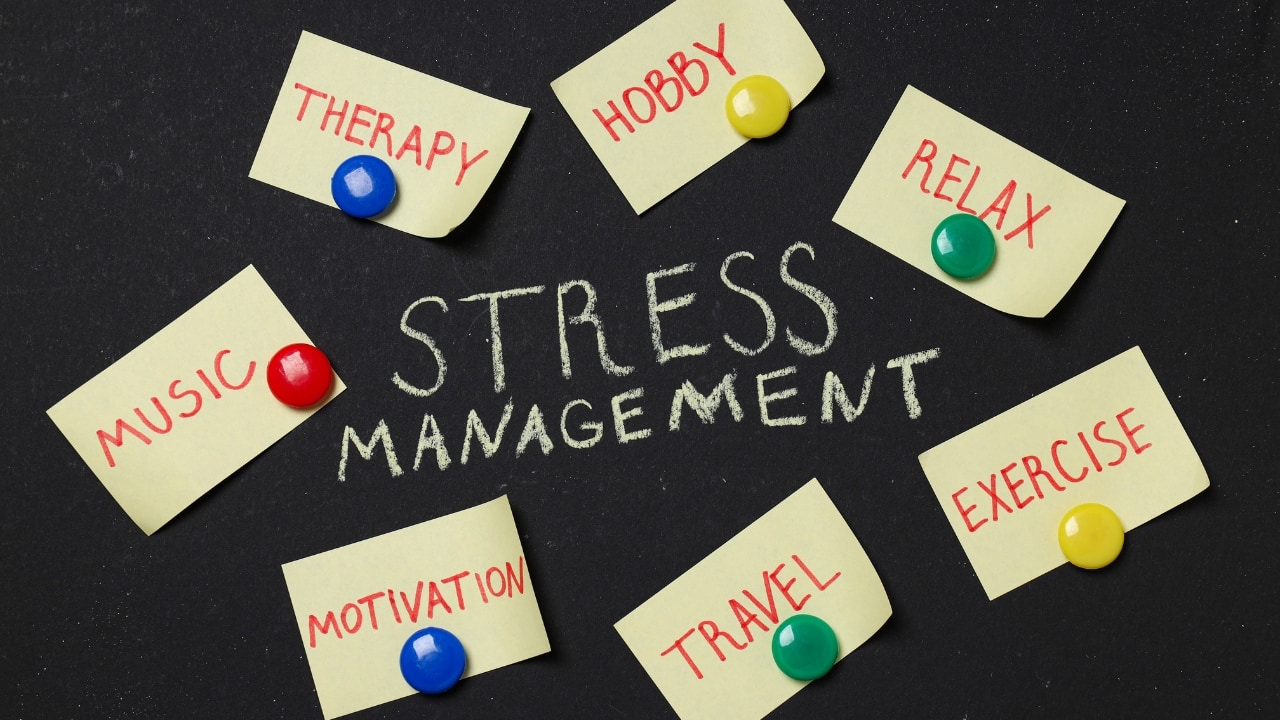



Workplace stress is a widespread issue that can dramatically affect productivity, job satisfaction, and overall well-being. Factors such as tight deadlines, overwhelming workloads, poor communication, and lack of support often contribute to a high-stress work environment. Identifying what makes a job stressful is the first step towards creating a more harmonious and efficient workplace.
What makes a job stressful?
Job stress can stem from a variety of factors, often involving both the work environment and individual circumstances. Here are some common contributors to job stress:
 Some common contributors to job stress (Image: Canva)
Some common contributors to job stress (Image: Canva)
 How to effectively tackle workplace stress? (Image: Canva)
How to effectively tackle workplace stress? (Image: Canva)
How to manage stress at workplace?
Fortunately, several strategies can help transform a stressful work environment into a more positive and productive one. Here’s how to effectively tackle workplace stress:
1. Foster Open Communication | Cultivate a culture of transparency and openness where employees feel comfortable sharing their concerns. Regular check-ins and honest dialogue can help identify potential stressors early on, allowing you to address them before they escalate into bigger issues.
2. Implement Flexible Work Arrangements | Offer flexible work options such as adjustable hours or remote work opportunities. This flexibility helps employees better manage their work-life balance, reducing stress and increasing overall job satisfaction.
3. Promote Work-Life Balance | Encourage employees to establish clear boundaries between work and personal life. Support taking regular breaks and using vacation time to recharge, which helps prevent burnout and maintain a healthy work-life balance.
4. Provide Adequate Training and Resources | Ensure employees have access to the necessary training and resources to perform their tasks efficiently. Providing clear instructions and adequate support can prevent frustration and reduce stress associated with job performance.
5. Create a Positive Work Environment | Build a supportive and upbeat workplace culture. Recognize and reward achievements, foster a sense of community and teamwork, and maintain a positive atmosphere to enhance employee morale and reduce stress.
6. Encourage Regular Breaks | Remind employees to take short, regular breaks throughout their workday. These breaks help refresh the mind, improve focus, and lower the risk of burnout, contributing to a more productive work environment.
7. Offer Wellness Programs | Invest in comprehensive wellness programs that include stress management workshops, fitness classes, and mental health support. Prioritizing employee well-being through such programs can lead to a healthier, more balanced workforce.
8. Ensure Clear Workload Management | Prevent employee overwhelm by managing workloads effectively. Clearly define roles and responsibilities, and avoid overloading employees with excessive tasks to help mitigate stress and improve job satisfaction.
9. Address Conflict Promptly | Handle workplace conflicts quickly and effectively. A proactive approach to resolving disputes can prevent issues from escalating and reduce stress among team members, fostering a more harmonious work environment.
10. Lead by Example | Encourage leaders and managers to model healthy work habits and effective stress management. When leadership prioritizes their own well-being and demonstrates positive behaviors, it sets a strong example for the entire team to follow.
Implementing these strategies can significantly reduce workplace stress and contribute to a more positive and productive work environment. By taking proactive steps to address the root causes of stress, you can create a workplace where employees feel supported, valued, and motivated.
Discover the latest Business News, Sensex, and Nifty updates. Obtain Personal Finance insights, tax queries, and expert opinions on Moneycontrol or download the Moneycontrol App to stay updated!
Find the best of Al News in one place, specially curated for you every weekend.
Stay on top of the latest tech trends and biggest startup news.